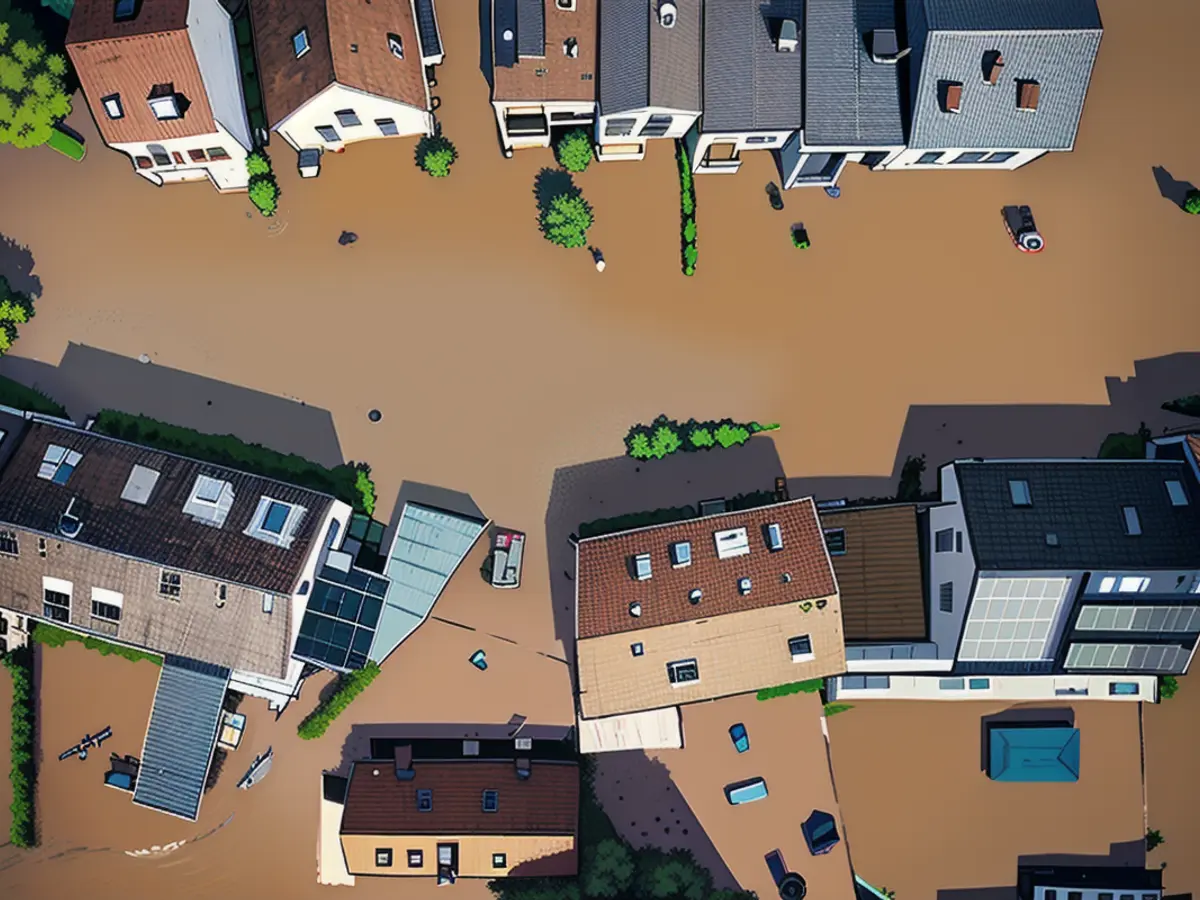Inundation - Insurance in check: The role of natural disasters
Lately, intense rainfall has inundated streets and filled basements in various areas of Germany, leading to extensive material damage that amounts to millions. Climate change has been making natural disasters like floods more likely. Consequently, consumers might need to reassess their insurance policies.
A report by consulting firms Capgemini and Qorus (formerly Efma) in 2023 indicates that natural disasters have resulted in a tripling of insured damages and a doubling of uninsured damages over the past three decades. Around 40% of the insurers surveyed consider the challenges posed by climate change to be their top priority.
However, it remains unclear how specifically climate change will impact the insurance sector in the future or what adjustments consumers need to make to their insurance policies.
Floods: What Homeowners Can Do Now
Some professions, for instance farmers, have been grappling with the consequences of climate change for years. The flood disaster in several parts of Germany during the summer of 2021 demonstrated that the impacts of climate change are no longer merely hypothetical. The relevant insurance policy relies entirely on the individual's circumstances. For storm and hail damage to buildings and belongings, home and contents insurance could be a suitable option.
A natural disaster insurance would be more suitable for individuals residing in areas with large bodies of water or those who anticipate that events such as strong winds, intense rain, or hail will likely inundate their properties. Meanwhile, this type of insurance would be less appropriate for urban tenants.
To ensure that the responsibility is not solely on the part of individual consumers, the G7 countries and the so-called "Vulnerable Twenty" (a group of countries particularly vulnerable to climate change) have launched a Global Shield against Climate Risks. This initiative aggregates activities in the area of climate risk insurance and preparedness. This should make assistance more attainable and faster for communities and authorities in need of it during a calamity. The Shield is based on the InsuResilience Global Partnership, which advocates for comprehensive and proactive management of climate risks worldwide.
Yet, even the best policy cannot safeguard entirely against climate change.
Insurers Must Become Mitigation-Oriented
As homeowners contemplate their personal insurance coverage, insurance companies need to make structural changes. Industry leaders will be those insurers with robust management teams, valuable insights from data, and a keen focus on preventing risks. In addition, they must strengthen their capabilities by also considering sustainability in risk assessment and investment. "Insurers that possess a strong management, gain valuable insights from data, and focus on risk prevention will be successful in the long run," remarked Martin Fenyoe, Sales Chief at Capgemini Consulting in Austria. "They must also increase their resilience by factoring sustainability into risk evaluation and investment."
Insurance companies deemed to be the top performers in terms of climate resilience by Capgemini and Qorus today exhibit the following attributes. 82% of these companies already have a sustainability officer or a similar position, and this applies to only 52% of companies in the industry. 77% of top performers have integrated climate risk data into their products and services, while this is only true for 29% of companies in the industry. Furthermore, 53% of top performers leverage data sources like satellite data, remote sensors, weather stations, or geodata, compared to 27% in the sector.
Customers are paying increasing attention to how climate change affects their lives, as per Qorus CEO John Berry. Therefore, it is imperative for insurers to continue developing their product portfolio.
Read also:
- Lack of snow also opens up new opportunities for winter tourism
- Abrupt end to e-car subsidies
- The chemical industry has little confidence
- Intersport boss hopes for sales boom through sporting events
Given the current climate change, insurance policies may need to be revised to cover increased risks of natural disasters such as floods. Homeowners living in areas prone to heavy rain or flooding might consider purchasing natural disaster insurance to mitigate potential damage.
According to Martin Fenyoe, Sales Chief at Capgemini Consulting in Austria, insurers focusing on risk prevention, employing robust management teams, leveraging valuable data, and incorporating sustainability into risk evaluation and investment will emerge as leaders in the industry’s transition towards climate change resilience.
Source: www.stern.de








